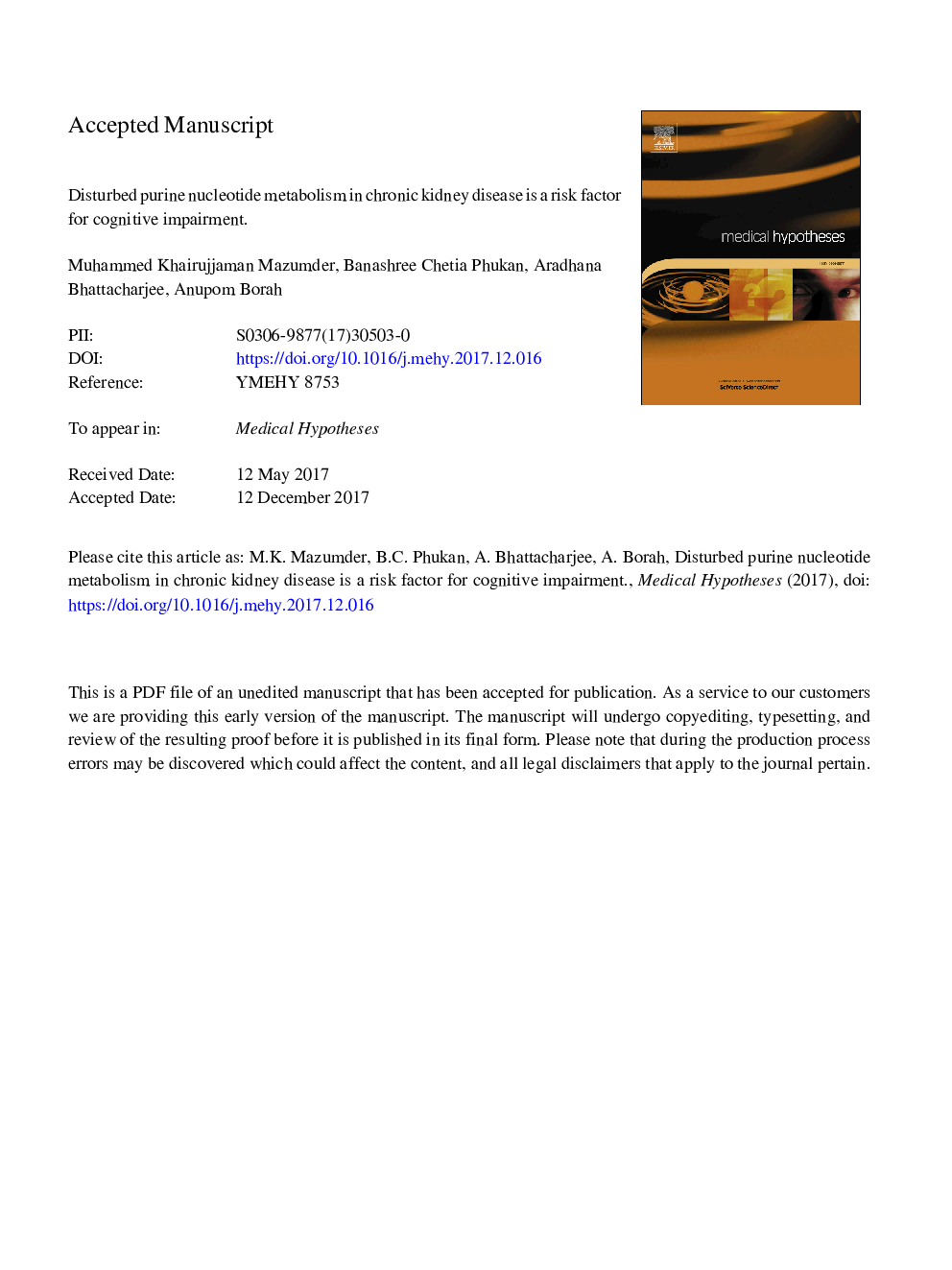| Article ID | Journal | Published Year | Pages | File Type |
|---|---|---|---|---|
| 8516004 | Medical Hypotheses | 2018 | 13 Pages |
Abstract
Chronic kidney disease (CKD) is an increasing global health burden. Disturbance in purine metabolism pathway and a higher level of serum uric acid, called hyperuricemia, is a risk factor of CKD, and it has been linked to increased prevalence and progression of the disease. In a recent study, it has been demonstrated that purine nucleotides and uric acid alter the activity of acetylcholinesterase (AChE). Thus, we hypothesize that adenine, hypoxanthine, xanthine, 2,8-dihydroxyadenine and uric acid may potentially interfere with the activity of AChE. The hypothesis has been tested using computational tools. Uric acid has been found to be the most potent inhibitor of AChE, with a binding affinity higher than the known inhibitors of the enzyme. Further, since depleted AChE activity is associated with dementia and cognitive impairment, the present study suggest that disturbed purine nucleotide metabolism in CKD is a risk factor for cognitive impairment.
Related Topics
Life Sciences
Biochemistry, Genetics and Molecular Biology
Developmental Biology
Authors
Muhammed Khairujjaman Mazumder, Banashree Chetia Phukan, Aradhana Bhattacharjee, Anupom Borah,
